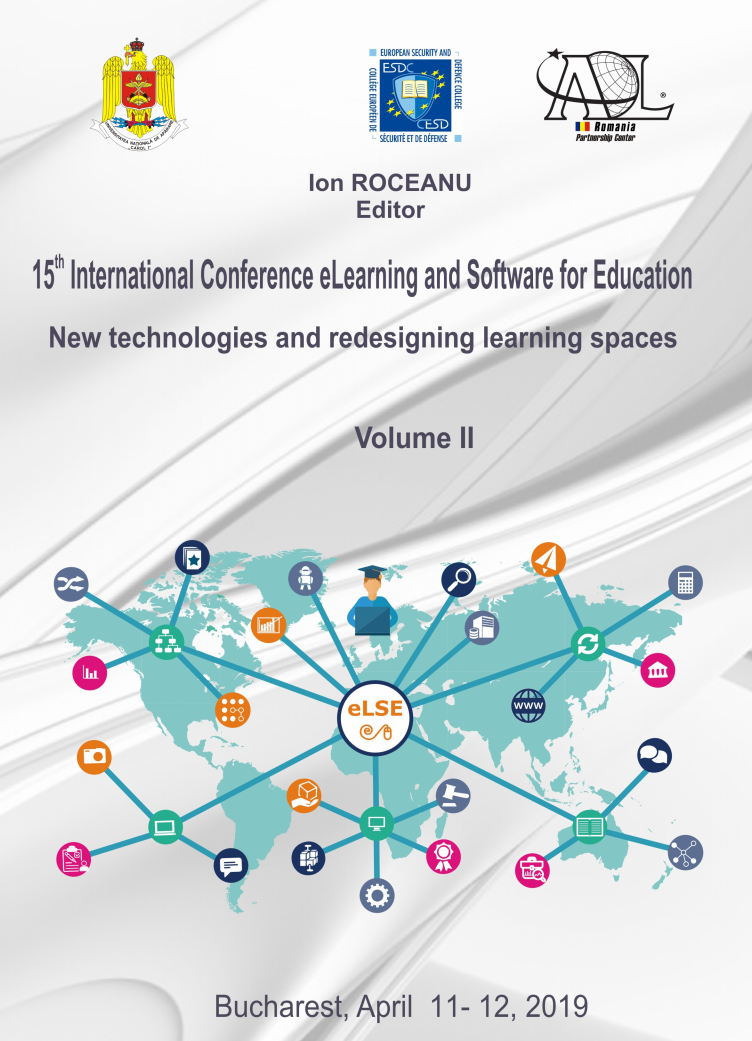Enhancing Self-Regulation Skills in E-Learning Environments
Enhancing Self-Regulation Skills in E-Learning Environments
Author(s): Maria CanterSubject(s): Social Sciences, Education, Higher Education
Published by: Carol I National Defence University Publishing House
Keywords: self-regulation skills; e-learning system; automatically feedback.
Summary/Abstract: In order to become independent learners, the students must develop self-regulation learning competences. The self-regulated learning process is closely connected to the student, the environment and the teacher, and it has been scientifically proved that it can be of three types: internal, external or mixed; thus, the internal one can be associated with the goal or the intrinsic motivation of the student, the external one deals with external factors and the mixed one relates to both the student and the teacher equally. An external factor can be the learning environment, in this case, the e-learning system. Analyzing the features that e-learning systems need to become an appropriate environment for the improvement of these competences in students, I have discovered a lack of representation in this research area. The paper introduces such a mechanism which is designed to develop the students’ metacognitive competences, the ones connected to self-regulated learning, an aspect which has not been approached so far in the e-learning environment. The mechanism used for developing the self-regulatory competences is the feedback, offered automatically and periodically by the e-learning system. We consider feedback as being the communication between the system and the learner, derived from a task or a process and it is individual, adapted feedback. The feedback module was designed, implemented based on the eFront e-learning system and tested. The module is automatically executed, once the time for monitoring student activity has run up, which can be correlated with the periodicity of offering feedback automatically (in the case of the tested prototype – one week). Based on the monitoring time during execution, the database interrogation is performed and only the student tasks that were completed within that particular time interval are considered. Depending on student profile, the feedback messages to be sent to the student are created, both in the form of internal messages and in the form of e-mail or text message. For every feedback message sent, an entry is created in the database so as to allow for later monitoring of the students’ evolution based on the feedback sent to them.
Journal: Conference proceedings of »eLearning and Software for Education« (eLSE)
- Issue Year: 15/2019
- Issue No: 02
- Page Range: 32-38
- Page Count: 7
- Language: English

